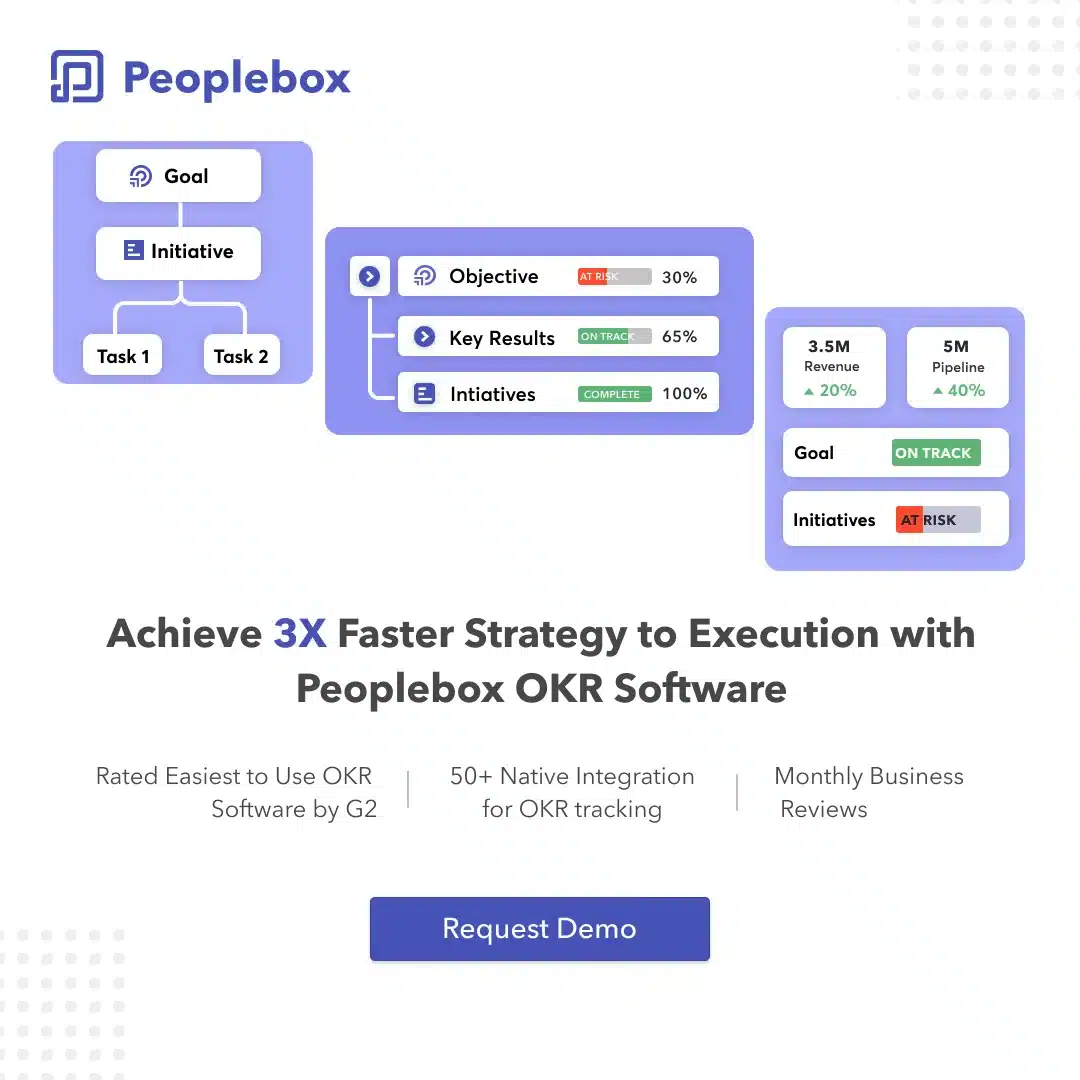A one on one meeting with your manager is a dedicated space for you to speak privately with your manager about your concerns, priorities, and professional ambitions.
According to Kim Scott, author of Radical Candor,
One-on-ones are the ideal environment to build rapport with your employees, help them clarify their priorities and address issues that wouldn’t be brought up at a meeting or over a messaging app.
There are plenty of articles guiding managers about how to conduct effective one on one meetings and draw out their direct reports.
Conversely, there is barely any literature for employees to help them prepare for a one on on one meeting with initiative.
The one on one meeting is one of the most powerful tools of a manager to build a high- performing team by focusing on each person, and the most effective platform for an employee to let the manager know about her ambitions, challenges, and intended road map.
With this blog article, we intend to bridge this information gap and share some tips about how you can truly claim your one on one meetings with your manager instead of being a passive recipient.
Why is a one on one meeting an employee’s meeting?
A one on one meeting with your manager is not just another company requirement or a tool to help your manager get status updates.
It is a meeting about YOU. It focuses on things that are important to YOU.
Andy Grove, former CEO and co-founder of Intel, says:
The most important criterion governing matters to be talked about [in one on ones] is that they be issues that preoccupy and nag the subordinate.
There’s also a misconception that water cooler conversations or quick catch-ups are sufficient and can replace one on one meetings.
The truth is, nothing can replace the deep dives that occur in your one one one meeting with your manager that generates mutual trust and an exchange of feedback.
A one on one meeting certainly helps your manager in many ways, but do you realize that it is essential for you to progress up the career ladder in your company?
What to discuss in 1:1 with the Manager?
A 1:1 meeting with your manager is an opportunity to discuss a variety of topics that can help improve your work performance, clarify expectations, and foster a positive working relationship. As an employee, this meeting is your opportunity to:
- Provide updates on your current projects, tasks, and any milestones you’ve achieved since the last meeting.
- Discuss your career goals and professional development.
- Candidly talk over the challenges you’re facing at work.
- Build a rapport with your manager and help her see you as a person beyond work.
- Receive constructive feedback on your performance.
- Give feedback to your manager on her management style/actions.
- Seek mentoring from your manager for your professional goals.
- Ensure actions are taken on the talking points discussed, maintaining accountability.
There isn’t a better time or place to achieve all these goals in close collaboration with your manager.
Why should you talk to your manager during 1:1?
Engaging in 1:1 discussions with your manager holds paramount importance for fostering effective communication, mutual understanding, and professional growth. These dedicated conversations provide a platform to share updates on projects and achievements, discuss challenges faced, and seek solutions collaboratively. These interactions offer a chance to provide and receive constructive feedback, contributing to a culture of open communication and continuous improvement. By engaging in regular 1:1 discussions, you actively contribute to a supportive and productive work environment, where your personal and professional development align with the team’s and organization’s goals.
How to prepare for 1:1 meeting?
- Review Your Goals
- Reflect on your personal and professional goals.
- Assess your progress since the last 1:1 meeting.
- Agenda Setting
- Create an agenda if your manager hasn’t provided one.
- List topics such as project updates, challenges, career development, and feedback.
- Document Accomplishments
- Highlight recent achievements and quantifiable results.
- Showcase your contributions to the team or organization.
- Identify Challenges
- Note any obstacles or problems you’ve encountered.
- Think of potential solutions or strategies to discuss.
- Development and Learning
- Consider your professional development goals and discuss desired skills or areas for improvement.
- Questions and Concerns
- Prepare a list of questions or concerns.
- Seek clarification and guidance on those during the meeting.
- Reflect on Feedback
- Review progress on feedback or action items from previous meetings.
- Listen Actively
- Actively listen to your manager’s feedback and suggestions.
- Take notes to capture important points.
- Follow-Up Plan
- Establish a follow-up plan with your manager.
- Clarify action items, deadlines, and responsibilities.
7 powerful tips to have effective one on one meetings with your manager

You can add to the effectiveness of a one on one meeting with your manager by being proactive.
Prepare for the meeting with a collaborative agenda, thoughtful note-taking, and following up on action items.
Let’s talk about the ways in which you can make one on one meetings benefit you:
1 Ensure they are not canceled
“We don’t really have anything important to discuss this week. Let’s drop the meeting for now, shall we?”
How many times has your manager blown off your one on one meeting?
One on one meetings are your chance to be seen and heard.
They are the cornerstone of your working relationship with your manager. Don’t squander the opportunity.
If your manager isn’t proactive about having regular one on one meetings, be assertive.
Request that the meeting be rescheduled, but don’t cancel it. Offer to find a time on her calendar that works for both of you.
When you don’t have one on one meetings for a long time, you let concerns fester until they snowball into major issues. You have more visibility to certain problems than your manager does.
Don’t wait to talk about them until it is too late.
Even if you haven’t been having great one on one meetings with your manager till now, you can start turning them around now.
The first step is to demonstrate how serious you are about having the meeting.
2 Participate in setting a meeting agenda
A one on one meeting usually lasts between 30 min-60 min.
This may not seem like a lot of time, but you can make it productive by creating an agenda in advance.
Ask your manager to collaborate with you in setting the agenda for your one on one meeting.
Do it well in advance, because it is useless to think of relevant talking points 10 minutes ahead of the meeting.
Andy Grove, author of High Output Management, spoke pertinently about setting a collaborative agenda:
“Somebody needs to prepare for the meeting. The supervisor with eight subordinates would have to prepare eight times; the subordinate only once. So the latter should be asked to prepare an outline, which is very important because it forces him to think through in advance all of the issues and points he plans to raise. Moreover, with an outline, the supervisor knows at the outset what is to be covered and can therefore help to set the pace of the meeting according to the “meatiness” of the items on the agenda.”
Pro-tip: Request your manager to review the agenda well before you have your one on one meeting with her.
A structured agenda will help her prepare for the meeting with meaningful data, suggestions, or solutions.
3 Endeavor to build a stronger connection with your manager
“Relationships, not power, drive you forward.”
Kim Scott, Author of Radical Candor
Approach your one on one meetings with your manager with positivity instead of passivity.
Look at them as a way of engaging with your manager, digging deeper into issues that concern the both of you, and building a strong bond.
Your manager wants to know what she can do to help you perform your best work. It is her goal to shore up your intrinsic motivation.
Talk to her about things that motivate you to work well, such as interesting projects or knowledgeable co-workers.
Also share feedback about things that drain you, even if it concerns your manager’s actions and behavior.
Unless you talk about it, your manager will never know.
4 Take thoughtful notes
Your manager is practically running from meeting to meeting all day. It is unreasonable to expect her to remember everything from your discussions.
A good practice is to take detailed notes during the conversation, and share them with her after the one on one meeting is over. You can also encourage her to take notes.
Pro-tip: Use a collaborative note-taking app where you can see each other’s notes.

Good notes are also helpful in picking up from where you left off in future one on one meetings.
Andy Grove talked about the symbolism involved in taking notes:
…Equally important is what “writing it down” symbolizes…the act implies a commitment, like a handshake, that something will be done.
Such an indication of commitment helps build trust between you and your manager, and bodes well for discussions on career development and progress.
5 Disclose your career ambitions
One of the most important things that you should necessarily discuss during your one on one meeting with your manager are your career goals and development.
This is your chance to explain to her how you’d like to be challenged in your role or if you’re getting bored in your current role.
- You could be looking for a promotion or a pay raise.
- You could have more personal goals which are still advantageous to the company, such as mastering a new skill or getting better at client interactions.
Don’t be afraid that your manager may view you as a threat. It is your manager’s job to help you grow and meet your career goals.
Harvard Business Review even recommends that managers ask their direct reports about career development. Jack Welch, former CEO of General Electric, has made the distinction between leader and employee clear:
Before you are a leader, success is all about growing yourself. When you become a leader, success is all about growing others.
Ask your manager for advice on how you can improve–which courses you should take, which people you should be talking to, or which books you can read.
Think of projects you can take up to further your goals and see if your manager can offer useful ideas around it.
Most importantly, remember to follow up on your goals to measure progress.
6 Exchange constructive feedback
Entering the one on one meeting with the right mindset goes a long way in setting the right tone for the conversation, especially if tough things need to be said.
If you stare at your manager blankly when she asks you a question or fill the meeting with empty talk, you’re both wasting your time.
It also makes your manager want to cancel future meetings or turn the conversation to status updates.
Marcel Schwantes, Chief Human Officer, Leadership From the Core in Inc. says that,
exceptional managers focus on the performance, rather than the person.
So don’t take your manager’s feedback personally. In turn, when giving voice to your opinions about your manager, approach your criticism with care and empathy.
Your one on one meeting is a sacred space where you can speak up without fear of retaliation, but remember that your manager is only human.
Extend to her the same courtesy that you would have extended to yourself.
Receiving and providing feedback is essential to keeping a workplace moving. It maintains overall productivity, and ongoing feedback helps you and your manager alike to improve.
7 Focus on actions
While you will be discussing development and goals during your quarterly performance reviews, your one on one meetings are the space where you can really open up about your dreams and hopes.
They break down your year-long performance into smaller chunks which can be easily remembered and followed through.
Creating action items with realistic and mutually approved deadlines is crucial to the success of your one on one meetings with your manager. These meetings are development opportunities, not check-ins.
Without action items, it is difficult to track progress or measure how much you have improved. Being able to quantify how much you have acted on feedback also demonstrates accountability and initiative.
During the course of your one on one meeting, nail down three things:
- What actions do you need to take?
- Which action items will your manager need to take?
- What will be the deadlines for these action items?
Pro-tip: Before the close of the meeting, review these points with your manager and ensure you have her approval. Note clear takeaways from discussion.
We recommend using a one on one meeting software which helps you and your manager focus on the tips we have discussed so far with an emphasis on getting things done. You can also suggest using Peoplebox for effective one on one meetings.
Effective One on One Meetings
We built a software that automatically schedules, lets you set agenda, take notes, exchange feedback and track actions – all in one place.
Effective One on One Meetings
Questions to ask your manager in next one on one meeting (Free template)
Asking the right questions will get you helpful, actionable answers. Think deeply about your situation and make a list of relevant questions that your manager can meaningfully respond to.
We have a few questions to get you started:
Career Growth:
1) What skills do you think are most important for me to work on to advance in in career?
2) As a part of my career development, what do you think is the most as an important step for me?
3) What do you think are my core strengths?
4) Where would my strengths add the most value?
5) How can I improve my skills? What training will be beneficial for me?
Work performance & responsibilities:
1) On a scale of 1-5, how would you rate my past month’s performance?
2) What’s something you want me to continue doing at work?
3) What would you recommend me to start doing to perform better?
4) How do you want me to update you on my task progress?
5) Looking back at [Project X], what are some things I could’ve done differently?
Team work & collaboration:
1) What are some things our team can perform better in?
2) What are the qualities you seek for in an emerging leader from our team?
3) What are some must have qualities for anyone to be a part of our team?
4) What’s the biggest challenge you face as a team leader?
5) How can my strengths help the team perform better?
Role clarity:
1) Where do you see my role evolving in next 1-2 years?
2) What expectations do you have from me in this role?
3) How can I improve in my current role to climb up the career ladder?
Manger support:
1) If I need help with something, what’s the best way to seek your guidance or support?
2) How can I approach you for support or guidance when I face roadblocks?
3) What do you think I could do to accelerate my career development?

Summing Up
Wrap-up all the talking points mentioned in the agenda and assign action items wherever relevant. Both you and your manager should take notes to keep track of the discussion and keep the momentum going from one meeting to the next.
The one on one meeting is not solely your manager’s responsibility. It is in your favor to prepare well, and help your manager stay on top of things while being accommodating of her challenges. When she sees that you care about your one one one meetings, she is more likely to invest time and effort in them.








